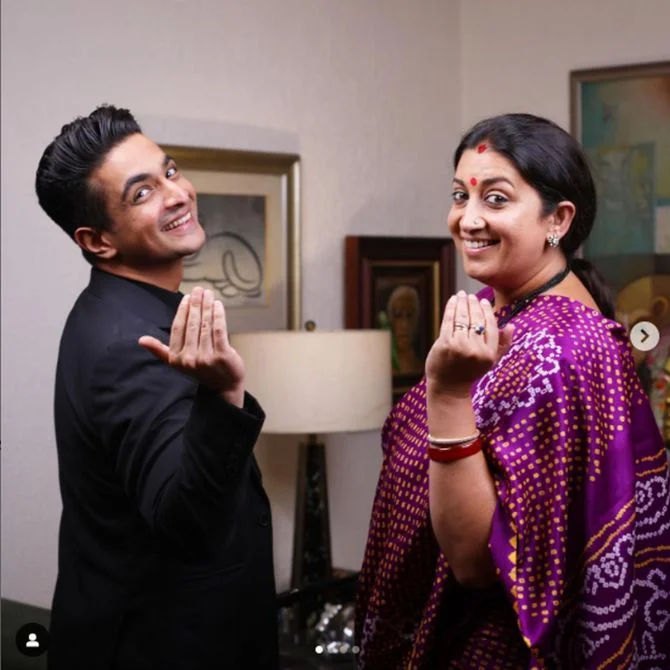Election 24
Meet the Key Players: Influencers Shaping India’s 2024 Lok Sabha Election

Indian Election’s Social Media Influence: A New Era
Just weeks before the first ballot in this year’s Indian election, Prime Minister Narendra Modi mingled with influencers known as BeerBiceps and Curly Tales at a Delhi event. This awards show celebrated the country’s top social media stars, highlighting the influencers’ burgeoning power, which was unimaginable a few years ago.
As politicians geared up to compete for India’s billion votes, these influencers were poised to play a crucial role in engaging the young, the indifferent, and the disillusioned. While social media is praised for democratizing the media, allowing anyone to share their views freely, it also has a darker side where threats are common, and the truth can be overshadowed by financial incentives.
A decade ago, “influencer” was an unheard-of term. Now, it’s a profession, says Vinay Deshpande, co-founder of Rajneethi, a political management firm. Teenagers are earning pocket money as part-time influencers, though the earnings can be substantial. Lower-tier influencers might make around 2,000 rupees ($24) a day, but top influencers can earn up to 500,000 rupees per post—comparable to a top-level manager’s monthly salary.
The creator of the Ranting Gola channel disclosed that political parties and election management firms have offered between 100,000 to 500,000 rupees for a single campaign. These sums are significant and can sway election outcomes. Deshpande noted that curated content from local influencers with small yet active followings helped an opposition candidate win an assembly election. Social media content is powerful and can influence perceptions, granting social currency to beliefs or opinions, which can sometimes hinder critical thinking.
Preethi Aggarwal, 25, relies on apps like Instagram, YouTube, and Twitter to understand the news. She follows “political influencers” who make news engaging and comprehensible, helping her form opinions. However, the question remains: whose perspective is she getting?
Influencer Samdish Bhatia revealed that politicians have offered him substantial sums for interviews, often requesting pre-approved questions or video approval. Bhatia declined to maintain editorial control. Associate Professor Joyojeet Pal from the University of Michigan noted that many such interviews are managed by politicians, blurring the line between interview and promotion if the questioning isn’t rigorous.
Pal’s research found that BJP leaders appeared more frequently in top influencers’ content than opposition leaders. There was also a decrease in accounts critical of the incumbent government and an increase in pro-BJP content. This trend suggests a growing reluctance to openly criticize the government, raising concerns for democracy.
Influencers critical of the government often operate in a hostile environment, using pseudonyms to protect their identities. The Ranting Gola has faced abusive comments and had her Instagram account disabled multiple times without clear reasons from the platform. The BJP government denies clamping down on dissent and free speech, but even pro-BJP YouTuber Sham Sharma acknowledges freedom of speech issues in India.
Despite these challenges, opposition parties are leveraging influencers to reach voters. Supriya Srinate, head of social media for the Congress party, claims mainstream media is dominated by the BJP, and frozen funds have hindered their advertising capabilities. Influencers offer an alternative, allowing the Congress to share its message through volunteers aligned with the party’s ideology.
Ankit Lal, former political advisor of the Aam Aadmi Party, agrees that influencers have democratized publicity. Akash Banerjee, who runs the YouTube channel The DeshBhakt, believes influencers can push boundaries more than traditional media. He cites Dhruv Rathee’s video “Is India becoming a dictatorship?” which has garnered about 24 million views on YouTube, introducing the term “dictatorship” into public discourse without government reaction.
“In our role as influencers, we might not verify every detail, but we owe it to the nation to alert people to looming threats and encourage them to act by voting,” says Banerjee.